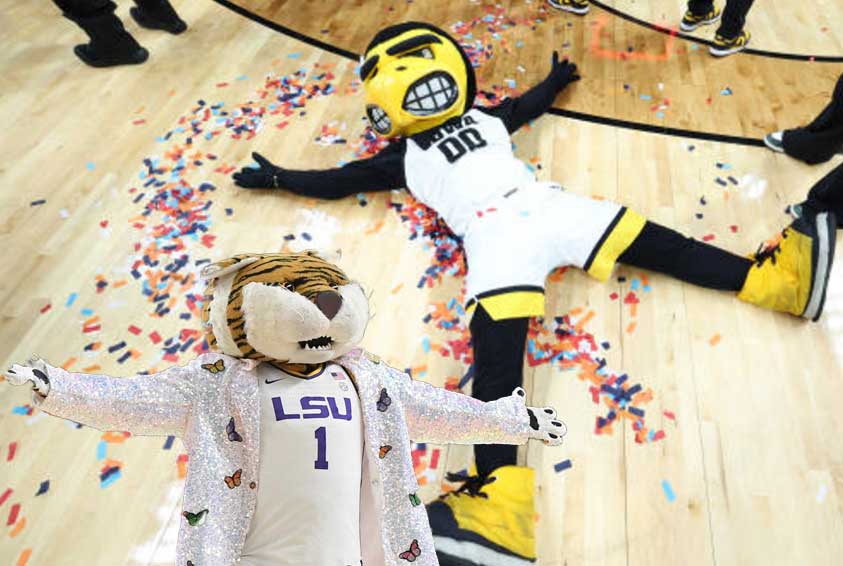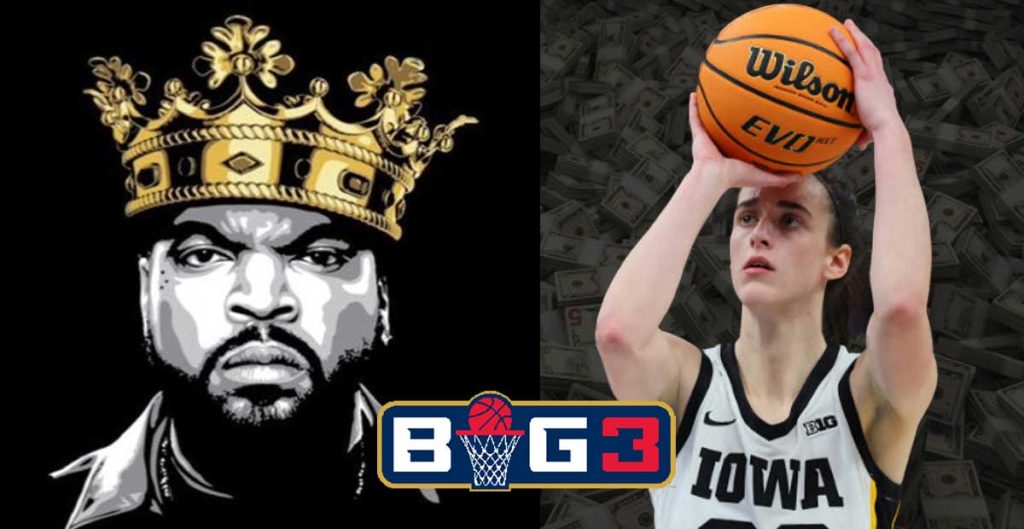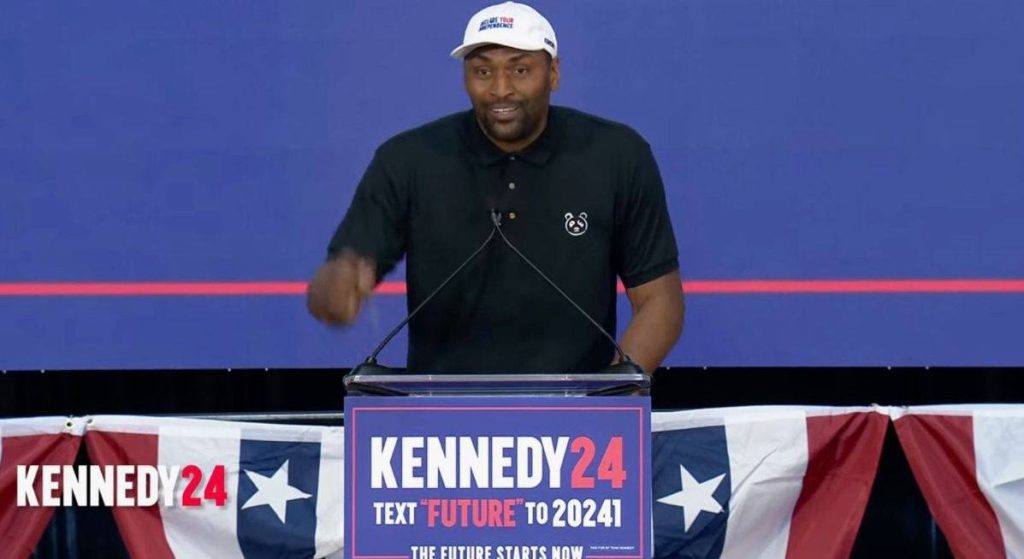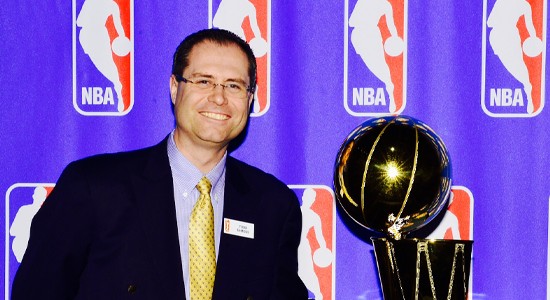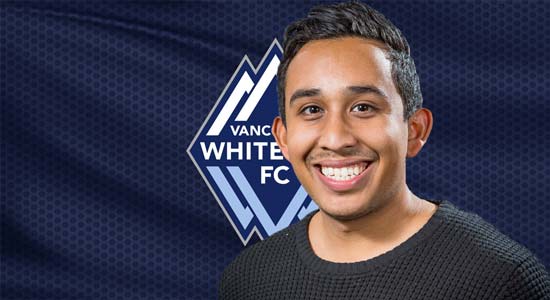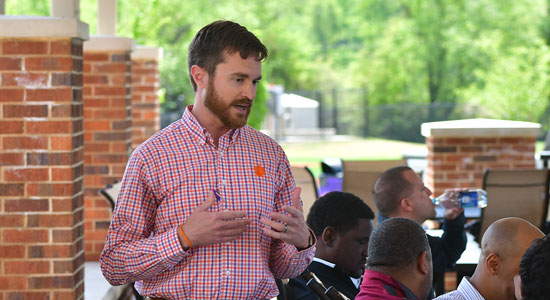
1 on 1 with Jon Allen | Associate Athletic Director of Event Operations | Clemson University

The goal is still to organize and oversee high-level events that are both safe and enjoyable to our student-athletes, staff, and fans. That goal remains unchanged. Specific protocols needed to meet that goal, however, have changed.
Jon Allen
Associate Athletic Director of Event Operations
Clemson University
The Latest
Jontay Porter Banned From The NBA For Life
Iowa vs LSU: A Landmark Moment in Women’s College Basketball
Former NHLer Josh Ho-Sang Now A Rapper
Metta World Peace Endorses RFK Jr. for President 2024
1Tell us about your role as Associate Athletic Director of Event Operations for Clemson University. What does a typical day look like for you?
My typical day can vary quite a bit depending on the day of the week or the time of year. I oversee the three full-time staff members in our operations department, as well as our graduate assistant.
Throughout the year, our department is continuously prepping for some type of event. These events are pulled together through meticulous coordination and thorough discussion amongst numerous entities. I am constantly corresponding with other organizations and planning meetings within our operations team.
Managing successful events requires help from other agencies or vendors, and therefore results in numerous invoices and bills requiring payment in the days following each event. Much of my time is allotted to processing these payments and managing our department’s overall budget.
Most events on campus require the set-up and tear-down of the designated venue, so there is also a physical component involved. Tasks may include moving and assembling equipment, bike rack barricades, metal detectors, temporary fencing, etc.
Very rarely do I sit behind a desk or computer all day, which in my opinion, is one of the positive aspects of this position. I enjoy the opportunity to get out of the office and get my hands a little dirty from time to time.
I also oversee our athletic facilities and grounds staffs, so I spend time interacting with those groups to ensure the general maintenance and upkeep of our facilities and grounds are in order. We have an incredibly talented and hardworking group that leads these initiatives, and I try to help and support when needed.
Additionally, I assist with the supervision of a few of our athletic programs, so I have the privilege to be involved in administrative duties of those programs as well.
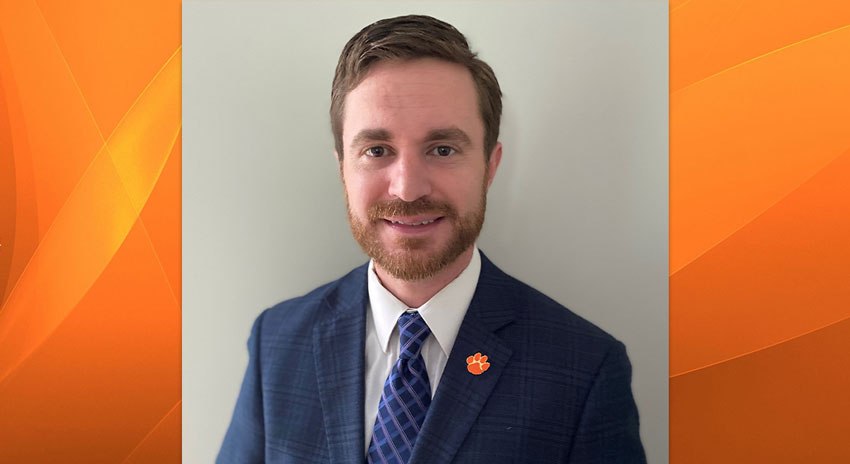
2Did you ever think or imagine a global pandemic would change the nature of your role? How much of your role has changed as a result of COVID-19?
I definitely did not anticipate the arrival of a global pandemic, so when COVID-19 first made headlines, I did not expect its endurance or ability to change the face of live events as it has.
At the macro level, my role has not changed all that much – the goal is still to organize and oversee high-level events that are both safe and enjoyable to our student-athletes, staff, and fans. That goal remains unchanged. Specific protocols needed to meet that goal, however, have changed.
Our crowds are smaller and seating arrangements are socially distanced. We are also focusing on cleaning and sanitization protocols more than ever before.
Obviously, the cleanliness of our facilities has always been a priority, but now surfaces and high touch areas must be more than clean – they need to be thoroughly sanitized.
We must constantly ask ourselves, “How are we ensuring that our student-athletes are remaining healthy while in the venue?" “How are we limiting interaction with fans and student-athletes?” “How are we attempting to limit unnecessary interactions amongst fans while enjoying the game?”
Health and safety concerns have always focused on security-related items in the past – bag checks, clear bags, metal detectors, etc. All of that is still in play, but now we are adding face-covering compliance, socially distanced seating layouts, concourse line spacing and queuing, restroom capacities, and hand sanitizer locations to an already long list of things to manage. It can be a lot to manage if you are not prepared, so we spend a great deal of time checking and re-checking for efficiency.
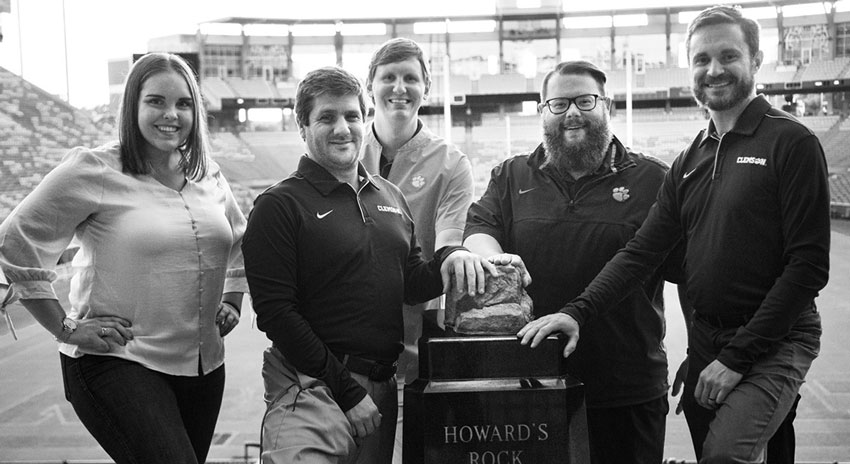
3A large part of your role is providing customer service and efficiency on game day. With the COVID-19 pandemic limiting stadium access to fans and reducing capacity, how is Clemson positioning themselves this season to provide a fan experience that is worthwhile in-stadium?
As I said previously, our main objective has not changed – our job is still to organize high-level athletic events that are safe and enjoyable. It is no secret that it takes effort to come to a live sporting event. Tickets can be expensive. Parking can be hard to acquire. Traffic can be congested.
It is incumbent on us that we do what we can to diminish those challenges as much as possible for our patrons. And if some of those challenges cannot be diminished, then we need to make sure that the experience the fans have in the stadium is so great that they forget about those challenges.
Unfortunately, we do have some limitations this year. Conference protocols have prevented the marching bands from performing on the field during pre-game or halftime.
Similarly, our spirit squads and mascots are also not permitted to be on the field-level at any time during the game. We have had to suspend our team’s Tiger Walk prior to football games because it draws a large crowd and puts fans in very close proximity to our football student-athletes and staff.
Our band traditionally does a pre-game parade around campus that has also had to be eliminated for this season. Much of the unique pageantry that makes college football so popular and unique is not available this season.
Our marketing and in-game experience team are not able to organize promotions on the field during timeouts, so these experiences must be done in other creative ways.
Our crowds are smaller at our events currently. It has never been more important to deliver the best possible fan experience to those who have still chosen to attend our events. The fans in attendance are our die-hards. They are so passionate about Clemson Athletics that even a global pandemic can not stop them from attending.
I believe that we must start by communicating the efforts and hard work that have been put into place in order to ensure each event is safe. People must feel comfortable being in our venues. If we can demonstrate the efforts that we have gone through to create this safe environment, then that is the first step in delivering a positive experience.
People’s priorities have changed in this pandemic. Health and safety while in a crowd is more important than ever before, so we must be able to deliver on this initiative above all else. If we get this right, then many of the other pieces will fall into place.
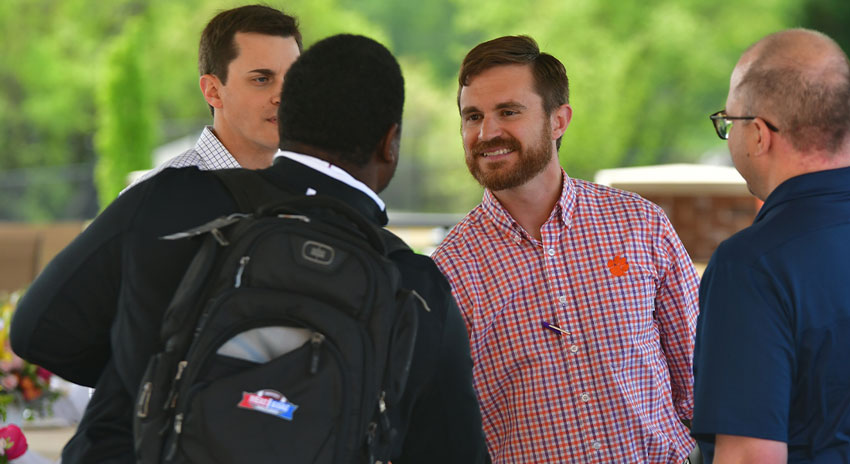
4In sports and especially event operations, anything can happen. How have you overcome sudden challenges and learned to not be hard on yourself for things that are beyond your control?
It can be a challenge. We are always striving for that perfect event where everything is flawless and nothing goes wrong. Spoiler alert – it will NEVER happen. It does not exist. I try to harp on this with my staff all the time. The goal is not to be perfect or have nothing go wrong. The goal is to be better every time we do it.
Things will go wrong – some preventable and some beyond our control. If we correct those mistakes and identify steps to prevent them from happening again, we are bettering ourselves as a department.
We learn from our failures and mistakes and use these lessons to improve our process and our approach.
Being perfect or the best is not attainable, but if we focus on being better all the time, we will find that we can fly pretty close to the Sun and not get burned. We can accomplish amazing things.
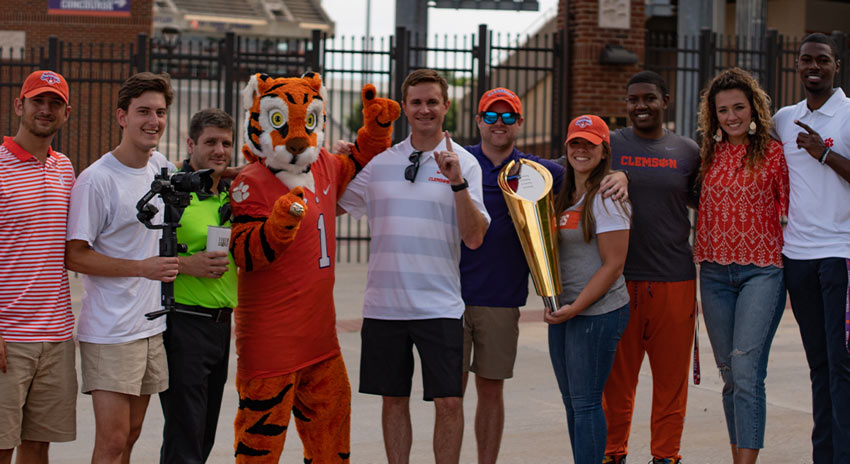
5You have a very specified role. How much of what you do in event operations needs to be understood by others working in departments such as marketing, sales, and digital?
We all must be on the same page and understand the goals that each department is trying to accomplish. It is important that everybody is a little “cross-trained” across departments.
I do not need to be qualified to lead our marketing or communications departments, however, I do need to understand what they are trying to accomplish and why their goals have been determined as such. It is imperative that the other departments know why we have certain protocols or procedures in place and what our objectives are for operating each event.
On game days, all the sub-departments in the athletic department are performing specific duties, but in order for the event to be efficient and successful, everyone must work cohesively to achieve our common objective.
I like to compare it to a symphony orchestra. Our athletic director is the composer. The AD sets the objectives and expectations. Each individual department has their own instrument or role to play at the proper time.
The event operations department is the conductor. We pull it together so that all the individual instruments are playing the same sheet of music at the right time and (hopefully) creating beautiful music.
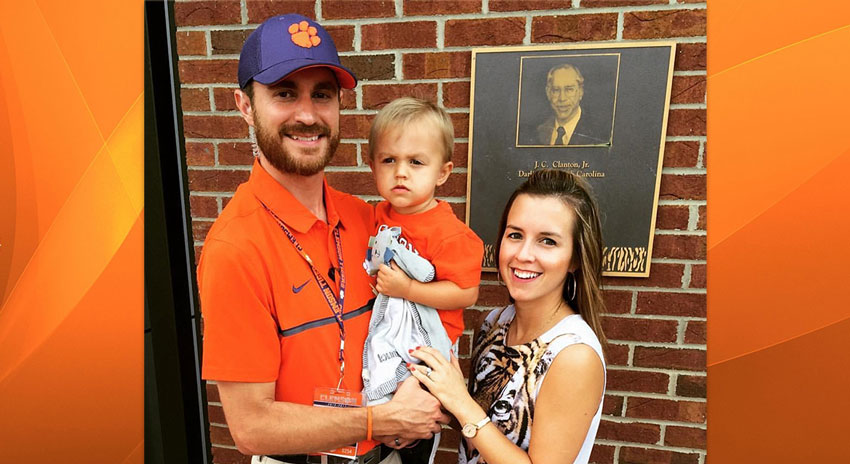
6As Associate AD of Event Operations, you direct football gameday operations. Now that you’re leading the coordination of over 1,000 people at Memorial Stadium, what were some things you learned jumping into managing people at a larger capacity?
More people certainly means a greater likelihood that something unplanned may happen. In a “normal” year we have 81,000+ fans inside Memorial Stadium plus another 10-15K tailgating in the parking lots. Add in another 1,000+ event staff and gameday workers and we are managing a small-sized city for 4-5 hours.
Unexpected occurrences will happen during that time. It’s imperative to have a concrete plan in place with local law enforcement agencies and medical/EMS personnel. Just as in operating a small city, these partnerships help manage the crowds and keep everybody safe and healthy.
It can be intimidating to oversee large venues with massive crowds, but the basics are the same regardless of size. Whether managing a small venue with 1,000 people or mega stadium with 100,000 people, the same principles apply. If you trust your instincts and training then you can be successful regardless of the size of the crowd or venue – you will just need more people to help you in a larger venue.
Make sure you are valuing the event staff that is working in your venue. Show your appreciation to the ticket takers, the ushers, the security staff, the concessionaires, and the custodial workers. They are most likely going to have more interactions with the fans than you ever will, and they are the ones that will leave the lasting impression on the fans. Do not underestimate that impact. Make sure they are appreciated and supported.
Also, make sure you take the time to educate and train your staff. The front-line workers also ultimately set your venue policies in how they enforce or interpret your venue rules and procedures.
7Finally, if someone wants to be successful in event operations, what do you believe are the three most important skills, or attributes they need to have?
- Communication: There are numerous skills that will serve you well, but communication is key. You must know how to communicate with people because you will interact with all different types of people throughout the day. Throughout the same day, you may be instructing ticket takers on how to use a ticket scanner, attending a police briefing, and answering tough questions from your athletic director. The ability to communicate and listen to all these different groups effectively and positively will ultimately dictate your success in the field of operations.
- Organization: Organizational skills are also incredibly important. Managing multiple tasks at the same time or preparing for multiple events at the same time will challenge anybody’s multi-tasking skills.
- Stress Management: The ability to successfully handle stress is paramount. The job is stressful at times, but if you can compartmentalize the stress and keep your focus, you will be able to overcome the pressure and thrive.
[get_current_post_author_pic_and_name]
The main goal in event operations is typically to organize high-level events that are enjoyable and create a positive experience for all that are involved. As Associate Athletic Director of Event Operations for Clemson University, Jon Allen plays a key role in making that goal happen. Although COVID-19 has put a damper on college gameday, Jon is continuing to make games at Memorial Stadium run both efficiently and safely. The fans that are currently attending games are die-hards – so passionate about Clemson Athletics that not even a global pandemic can stop them (while taking the necessary safety measures, of course!) More than ever, creating a positive gameday experience is extremely important. Event operations roles encompass an immense amount of moving-parts but, with Jon's hard work and dedication, Clemson is in good hands!



